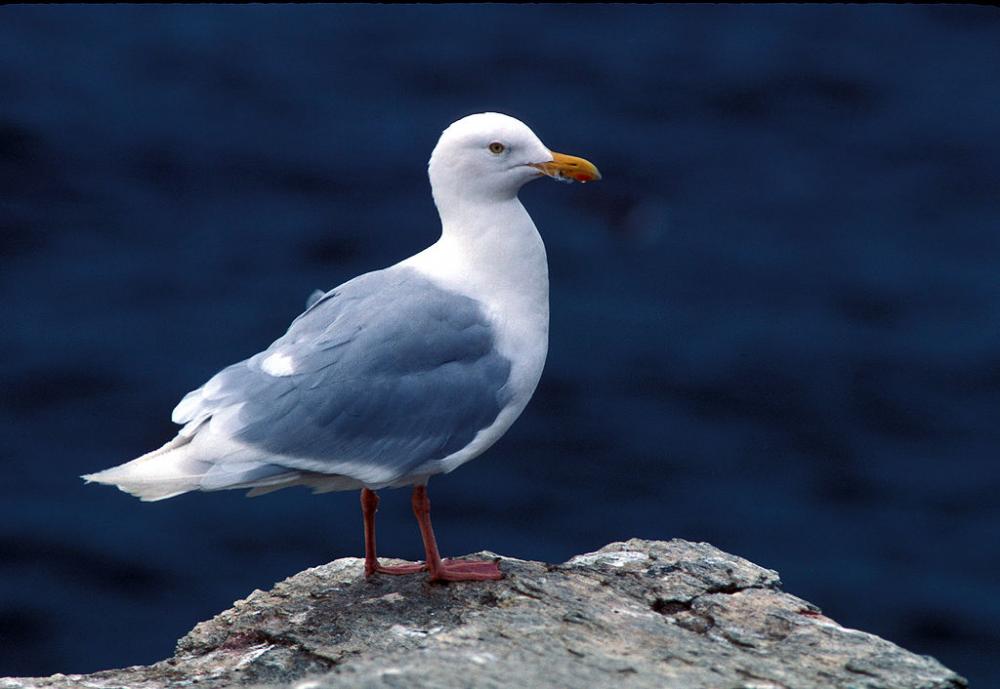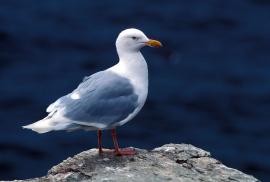Guide to Boreal Birds
Overview
The Glaucous Gull is uncommon south of Canada; it is usually found with flocks of other gulls when it visits the United States. This is one of the most predatory of gulls, capturing and eating auks, plovers, small ducks, ptarmigans, and songbirds as well as lemmings and fish. It is also a scavenger, feeding on garbage, dead animal matter, and even bird droppings.
Description
28" (71 cm). A large gull. Adults pearl-gray above, with no black in wing tips; white on head and underparts. Bill yellowish; feet pinkish. Immatures creamy buff, with pinkish, dark-tipped bill. See Glaucous-winged Gull.
Voice
Hoarse croaks and screams.
Nesting
3 light brown eggs, with dark chocolate blotches, placed in a cliff nest lined with moss and grass.
Habitat
Shores of lakes, rivers, seacoast; also refuse dumps and sewage outflows.
Range/Migration
Breeds in Alaska and northern Canada. Winters along coast south to California (rarely) and Virginia; rare in Great Lakes and on Gulf Coast. Also in Eurasia.



